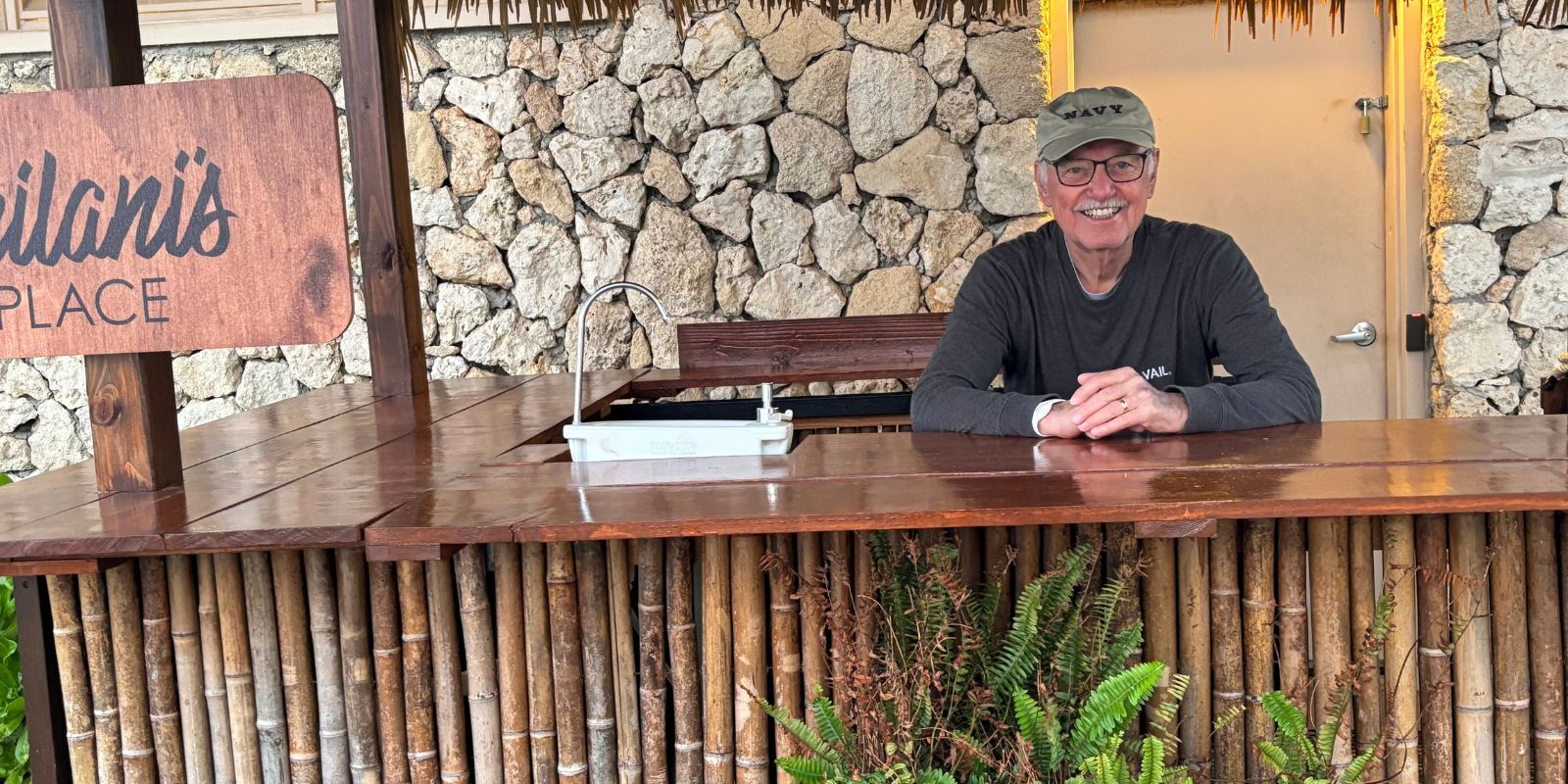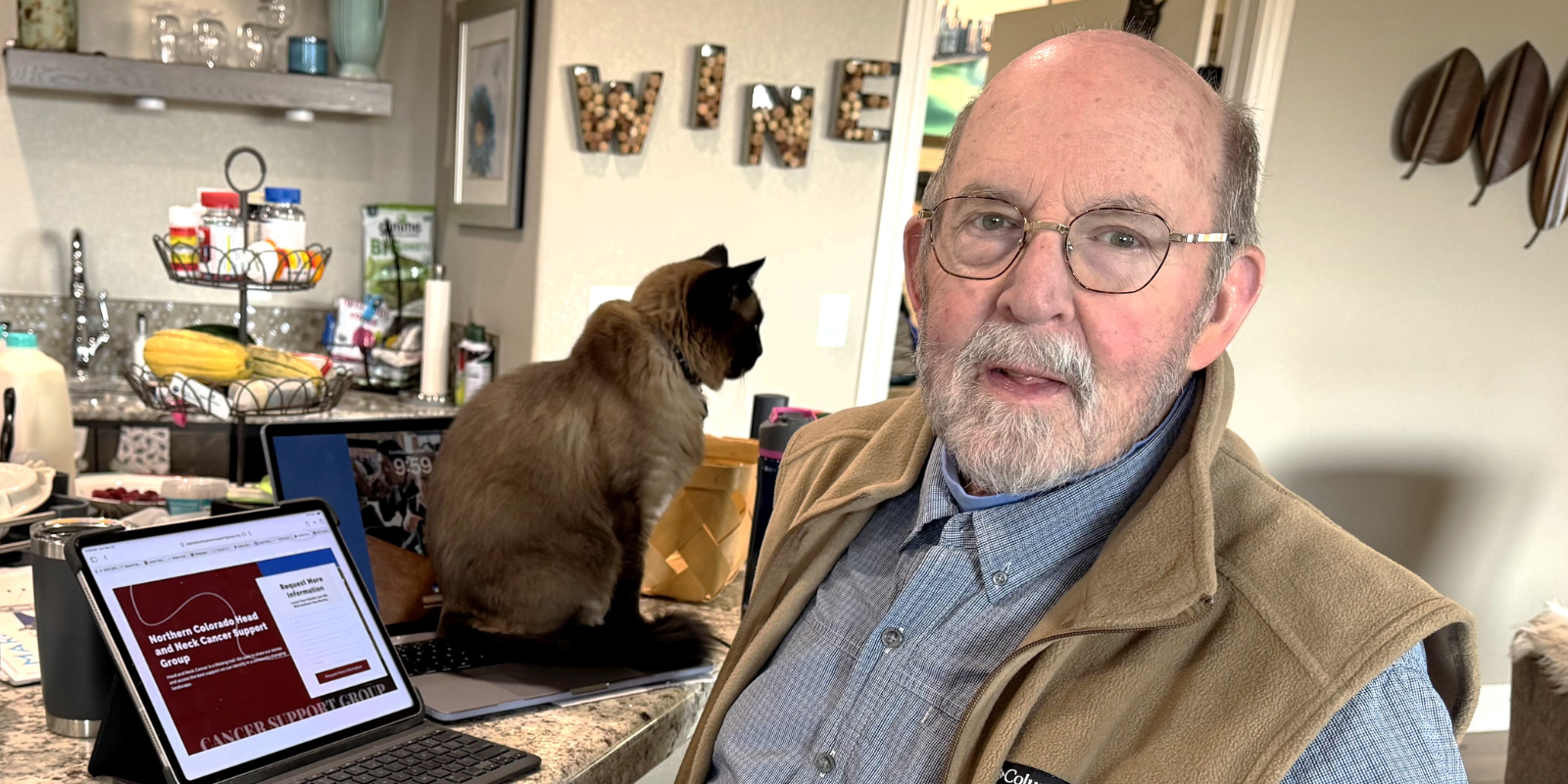James Bird gets emotional talking about it. How he qualified for a clinical trial that, in his view, preserved his manhood after he was diagnosed with prostate cancer in late 2022.
“The day I went in to see if I qualified, there were 10 other guys out there in the lobby who didn’t get into the trial,” he says. “I felt so sorry for them. One of the technicians who was involved with the trial told me he was getting calls from all over, from guys begging to get in. That’s how important this is.”
Game-changing treatment
The trial, run by University of Colorado Cancer Center member Al Barqawi, MD, was for a new procedure for treating prostate cancer. An alternative to the standard-of-care surgery that removes the prostate altogether, the minimally invasive procedure — known as irreversible electroporation (IRE), or Nanoknife, destroys cancer cells within the prostate by running an electric current through the prostate cells and tissue.
To be eligible for the procedure, as Bird was, the patient must have a localized, organ-confined prostate cancer that is early or intermediate risk. The location of the cancer cannot be in direct contact with sensitive areas of the prostate, such as the sphincter, the rectal wall, and the nerves that control erectile function.
“This innovative and relatively new approach allows for the destruction of the prostate cancer cells and preservation of the remaining part of the prostate gland and the surrounding tissue, including preservation of the rectum, the bladder, and the nerves, including the sphincter that allows the patient to stay dry,” says Barqawi, a professor of urology in the CU School of Medicine.
Reducing side effects
The Nanoknife procedure was an answer to prayer for Bird, who was concerned about the incontinence and effects on sexual function that can happen after a prostatectomy (prostate removal surgery).
“Some people think prostate cancer is, quote, ‘a good cancer to have,’ because of the survival rates,” Bird says, referencing the fact that the five-year survival rate for prostate cancer that has not spread to other parts of the body is nearly 100%. “But it’s just the opposite for a man. Their quality of life will change. You’re potentially changing what men are all about. That one little gland has so much function.”
Barqawi says that in his clinical trial of the Nanoknife, side effects so far have been minimal and limited to short-term urinary symptoms. There is minimal effect on erectile function and urination in the long term, beyond four weeks after the procedure.
PSA number points to cancer
Bird’s prostate cancer experience began, as it does for so many men, not with any symptoms, but with a high level of prostate-specific antigen (PSA) in the standard blood test doctors run annually to detect prostate cancer. His doctor referred him to a urologist, who did an MRI, then a procedure called a targeted biopsy — which uses advanced imaging techniques to identify areas of the prostate suspicious for cancer — to diagnose Bird with prostate cancer.
“When you hear you have cancer, it’s devastating,” says Bird, 64, who lives in Denver. “Maybe it’s my Catholic upbringing, but I just said, ‘Hey, God, help me out on this one.’”
Bird’s wife, a surgical nurse, began exploring her husband’s options, including clinical trials. When she discovered Barqawi’s trial of the Nanoknife — part of a recently closed, multi-center study to assess the effect and safety of the device in treating prostate cancer in the U.S. — she encouraged him to see if he qualified. He did, and he received the procedure in January 2023. It was a success.
The Nanoknife procedure is done under general anesthesia, and the patient goes home the same day, with a catheter for a few days to accelerate healing. The NanoKnife is currently approved by the FDA for ablation of cancer cells, though it is not FDA-approved specifically for prostate cancer. Urologists are permitted to perform the procedure “off-label” for prostate cancer, but it may not be covered by insurance.
Two months ago, Bird was declared cancer free. He still goes to see Barqawi for follow-ups every three months. His PSA numbers are checked regularly, and he will get regular MRIs to make sure the cancer hasn’t returned. As he continues to enjoy such activities as traveling and visiting national parks with his wife, Bird says he is more than grateful to Barqawi for preserving his quality of life.
“The best news I ever heard from Dr. Barqawi was that I was cancer free, but a close second was when he told me, ‘Bird, I’m taking you in for this trial,’” he says. “It’s not that I was going to die, but he saved my life.”
Lead photo: James Bird with his English Bulldog, Lola.




